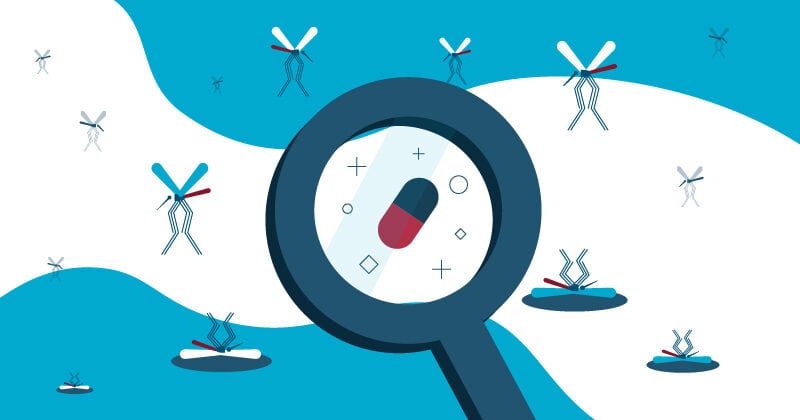What Are Antimalarial Drugs And How Do They Prevent Malaria?

Malaria, a vector-borne infectious disease caused by Plasmodium parasites, continues to pose a significant global health burden, particularly in sub-Saharan Africa.
Antimalarial drugs play a crucial role in preventing and treating this disease.
This article provides an overview of antimalarial drugs, their mechanism of action, administration, and potential side effects.
By eliminating personal pronouns and adopting an objective and impersonal writing style, this article aims to present a comprehensive understanding of antimalarial drugs and their role in malaria prevention without bias or subjectivity.
Furthermore, the article emphasizes the importance of ongoing research and development efforts in the field of antimalarial drugs to combat drug resistance, improve efficacy, and ensure the continued success of malaria control programs.
Key Takeaways
- Sufficient funding is crucial for research and development of antimalarial drugs.
- Understanding drug resistance mechanisms is essential to combat malaria parasites.
- Optimization of drug delivery systems can enhance treatment outcomes for malaria.
- Continued research leads to the discovery of new and improved antimalarial drugs with increased efficacy and minimal side effects.
Overview of Malaria and Its Transmission
Malaria, a life-threatening disease caused by the Plasmodium parasite and transmitted through the bites of infected female Anopheles mosquitoes, poses a significant global health challenge.
It affects millions of people worldwide, particularly in tropical and subtropical regions.
Malaria prevention has been a priority for global efforts to combat the disease.
One of the key strategies to prevent malaria is the use of antimalarial drugs.
These drugs work by targeting the Plasmodium parasite at different stages of its life cycle, effectively killing or inhibiting its growth in the human body.
Various antimalarial drugs, such as chloroquine, artemisinin-based combination therapies (ACTs), and sulfadoxine-pyrimethamine, have been used in different regions and contexts.
However, due to the emergence of drug-resistant strains of the parasite, ongoing research and development of new antimalarial drugs are crucial to ensure effective malaria prevention worldwide.
Understanding the Importance of Antimalarial Drugs
Understanding the significance of antimalarial medications is essential in comprehending the effective strategies employed to combat this parasitic disease.
Antimalarial drugs play a crucial role in global health by preventing and treating malaria, which is responsible for a significant number of morbidity and mortality cases worldwide, particularly in malaria-endemic regions.
These drugs work by targeting the malaria parasite, either by inhibiting its growth or killing it directly.
Additionally, antimalarial drugs can also provide prophylactic protection to individuals traveling to malaria-endemic areas, preventing the onset of the disease.
In terms of cost-effectiveness, antimalarial drugs have proven to be highly beneficial.
The prevention and treatment of malaria using these drugs have shown to be cost-effective, with studies demonstrating that investing in antimalarial interventions can result in substantial economic gains.
By reducing the burden of malaria, antimalarial drugs contribute to increased productivity, reduced healthcare costs, and overall improvements in societal well-being.
Therefore, the widespread availability and utilization of antimalarial drugs are of utmost importance in the global fight against malaria.
Types of Antimalarial Drugs
The diversity of available treatment options for malaria includes various classes of medication with distinct mechanisms of action. Antimalarial drugs play a crucial role in preventing the spread and severity of this life-threatening disease.
Here are five types of antimalarial drugs:
- Artemisinin-based Combination Therapies (ACTs): These are the most effective and widely recommended drugs for malaria treatment. They combine an artemisinin derivative with a partner drug to enhance efficacy and prevent resistance development.
- Chloroquine: This drug was once the first-line treatment for malaria. However, due to widespread resistance, it is now limited to areas with known susceptibility.
- Mefloquine: This drug is used for both treatment and prevention of malaria. It is effective against chloroquine-resistant strains but can have side effects.
- Atovaquone-Proguanil: This combination drug is commonly used for malaria prophylaxis. It works by inhibiting the parasite’s mitochondrial electron transport.
- Quinine: Derived from the bark of the cinchona tree, quinine has been used for centuries to treat malaria. It is now primarily used as an alternative treatment when other options fail.
As resistance development remains a concern, ongoing research aims to develop new antimalarial drugs and alternative treatments to combat this persistent global health threat.
How Antimalarial Drugs Work
Antimalarial medications exert their effects through various mechanisms, targeting specific processes within the malaria parasite to disrupt its growth and replication. These drugs can act on different stages of the parasite’s life cycle, including its ability to invade and multiply within red blood cells. Some antimalarial drugs inhibit the parasite’s ability to synthesize nucleic acids or proteins, while others interfere with essential metabolic pathways. Additionally, certain medications can prevent the parasite from detoxifying harmful byproducts of its metabolism, leading to its demise. However, the efficacy of antimalarial drugs is threatened by the emergence of resistance. Malaria parasites can develop genetic mutations that render them less susceptible to the drugs’ effects, allowing them to survive and multiply despite treatment. This highlights the ongoing need for the development of new antimalarial drugs with different mechanisms of action to combat drug resistance effectively.
| Mechanism | Description |
|---|---|
| Inhibition of nucleic acid synthesis | Interferes with the parasite’s ability to replicate its genetic material |
| Protein synthesis inhibition | Disrupts the production of essential proteins required for parasite survival |
| Metabolic pathway disruption | Interferes with critical metabolic processes necessary for the parasite’s growth |
| Detoxification inhibition | Prevents the parasite from neutralizing harmful byproducts of its metabolism |
Administration and Dosage of Antimalarial Drugs
Administering antimalarial medications involves carefully determining the appropriate dosage based on factors such as the patient’s age, weight, and the severity of the infection, and ensuring consistent adherence to the prescribed treatment regimen.
The administration methods for antimalarial drugs vary depending on the specific medication. Common methods include oral tablets, intravenous injections, and intramuscular injections. These different administration routes allow for flexibility in delivering the medication to patients.
Additionally, the dosage of antimalarial drugs may need to be adjusted in cases of drug resistance. Drug resistance occurs when the malaria parasites adapt and become less susceptible to the effects of the medication. In such cases, higher dosages or alternative medications may be required to effectively treat the infection.
Adhering to the prescribed dosage and treatment regimen is crucial for the successful management of malaria and to minimize the risk of further drug resistance.
Common Side Effects and Precautions
Common side effects and precautions associated with the use of antimalarial medications should be carefully considered in order to ensure safe and effective treatment of malaria. While antimalarial drugs are vital in combating the disease, they can also have some adverse effects and require certain precautions to be taken. The most common side effects include nausea, vomiting, diarrhea, and headache. In rare cases, more severe side effects such as allergic reactions or liver damage may occur. It is important to seek medical attention if any of these symptoms persist or worsen. Additionally, certain safety precautions should be followed when taking antimalarial drugs, such as avoiding alcohol consumption and using contraception methods to prevent pregnancy during treatment. Patients should also inform their healthcare provider about any existing medical conditions or medications they are taking to prevent potential drug interactions. By being aware of these side effects and taking necessary precautions, the use of antimalarial medications can be both safe and effective in treating malaria.
| Side Effects | Safety Precautions |
|---|---|
| Nausea, vomiting, diarrhea, headache | Avoid alcohol consumption |
| Allergic reactions, liver damage (rare) | Use contraception during treatment |
| Seek medical attention if symptoms persist or worsen | Inform healthcare provider about existing medical conditions or medications |
Importance of Continued Research and Development of Antimalarial Drugs
Continued research and development of new treatments for malaria is crucial in order to enhance the effectiveness and safety of antimalarial medications.
One key aspect of this research is the allocation of sufficient funding to support studies aimed at identifying novel compounds and improving existing drugs. With the emergence of drug resistance in malaria parasites, it is essential to develop alternative medications that can overcome this challenge. By investing in research, scientists can better understand the mechanisms underlying drug resistance and develop strategies to combat it.
Additionally, ongoing research can identify potential drug targets and optimize drug delivery systems to improve treatment outcomes. Furthermore, continued research and development can lead to the discovery of new antimalarial drugs with improved efficacy and reduced side effects, ultimately contributing to the global effort to eliminate malaria.
Frequently Asked Questions
What are some alternative methods for preventing malaria besides antimalarial drugs?
Alternative prevention methods for malaria, besides antimalarial drugs, include non-drug interventions such as insecticide-treated bed nets, indoor residual spraying, and environmental management to reduce mosquito breeding sites. These methods aim to interrupt the transmission of the malaria parasite.
Can I take antimalarial drugs if I am pregnant or breastfeeding?
The safety of taking antimalarial drugs during pregnancy and breastfeeding should be carefully considered. Consult with a healthcare professional to assess the risks and benefits of using antimalarial drugs in these situations.
Are there any specific populations that should avoid taking antimalarial drugs?
Certain populations, such as individuals with certain medical conditions or on specific medications, should avoid taking antimalarial drugs due to potential side effects. It is important to consult with a healthcare provider before initiating antimalarial treatment.
How long does it take for antimalarial drugs to start working after taking them?
The time it takes for antimalarial drugs to start working after ingestion varies depending on the specific drug. Side effects of antimalarial drugs include nausea, vomiting, headache, and dizziness.
Are there any natural remedies or supplements that can be used alongside antimalarial drugs for better efficacy?
There is limited scientific evidence on the effectiveness of natural remedies or supplements when used alongside antimalarial drugs. Further research is needed to determine their potential benefits and interactions with antimalarial medications.








